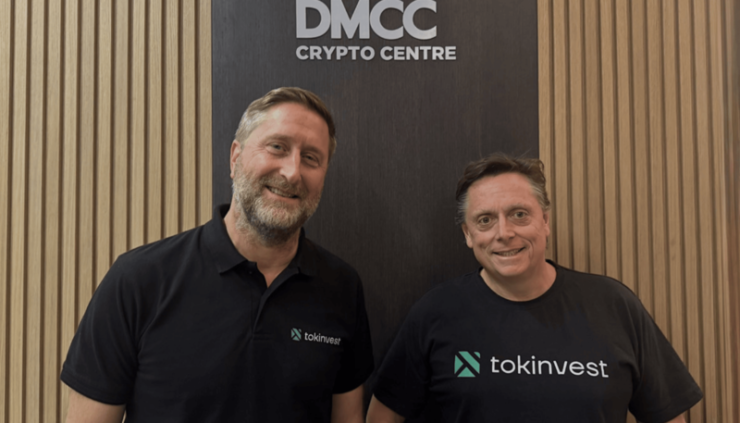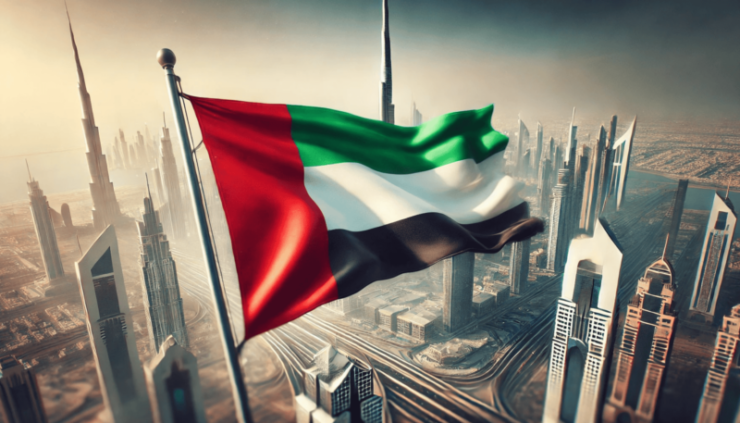The United Arab Emirates (UAE) is rapidly positioning itself as a key player in the real-world asset (RWA) tokenization boom, with industry leaders reporting growing interest in blockchain-based asset trading. As blockchain technology transforms how assets are bought, sold, and financed, the UAE is fostering an environment that encourages greater liquidity and accessibility for traditionally illiquid markets.
RWA tokenization—the process of minting financial and tangible assets into blockchain-based tokens—has seen record growth, with on-chain RWAs reaching an all-time high of $17 billion as of February 3, 2025. This breakthrough points to the sector’s rising prominence as a leading crypto investment trend in 2025.
According to Scott Thiel, founder and CEO of Tokinvest, a UAE-regulated RWA platform, there is no shortage of demand from asset owners looking to explore tokenization. Many real estate developers and property owners are particularly keen on using tokenization as an alternative means of financing or selling their properties, reflecting the growing adoption of blockchain in real estate transactions.

Strategic Partnerships and Market Expansion
Mantra, a leading real-world asset (RWA) blockchain firm, has signed a $1 billion agreement to tokenize real estate properties owned by Damac Group, one of the largest conglomerates in the UAE. Under this deal, all tokenized assets from Damac will be exclusively available on the Mantra blockchain throughout 2025, marking a significant step in the country’s push toward real estate tokenization.
Mantra also secured its Virtual Asset Regulatory Authority (VARA) license on February 19, allowing it to expand operations across the Middle East and North Africa (MENA) region. This regulatory approval is expected to accelerate the adoption of tokenized real estate, attracting more developers and institutional investors into blockchain-powered asset ownership.
According to OKX MENA CEO Rifad Mahasneh in an interview with Cointelegraph, the UAE has seen remarkable growth in real estate tokenization, positioning itself as a leader in blockchain-based property investments. He noted that other key sectors like fashion, finance, and venture capital are also exploring tokenization, with growing interest in carbon credits and intellectual property assets as the next frontiers for RWA adoption.
“We’re seeing interest and pick-up in core industries in the UAE, like real estate, which has been in a boom phase for a number of years now, as well as the fashion and finance industries and VCs,” Mahasneh said.
Regulatory Framework Enhances Market Confidence
The UAE’s forward-thinking regulatory approach has been pivotal in attracting blockchain enterprises. Thiel, who contributed to shaping VARA’s regulatory framework, emphasizes the UAE’s commitment to establishing clear guidelines for tokenized assets, a contrast to the ambiguity present in other jurisdictions. This clarity has effectively “de-risked” numerous Web3 activities, fostering a conducive environment for innovation and investment.
Quick Facts:
- Booming Tokenization Market: The global real estate tokenization market is projected to grow from $3.5 billion in 2024 to $19.4 billion by 2033, at a CAGR of 21%.
- Regulatory Leadership: The UAE’s Virtual Asset Regulatory Authority (VARA) provides clear guidelines, enhancing investor confidence and attracting blockchain firms.
- Strategic Industry Partnerships: Major deals, such as Mantra’s $1 billion agreement with Damac Group, highlights the UAE’s dynamic tokenization landscape.
- Diversification Potential: Beyond real estate, tokenization is poised to impact sectors like carbon credits and intellectual property, broadening investment horizons.





